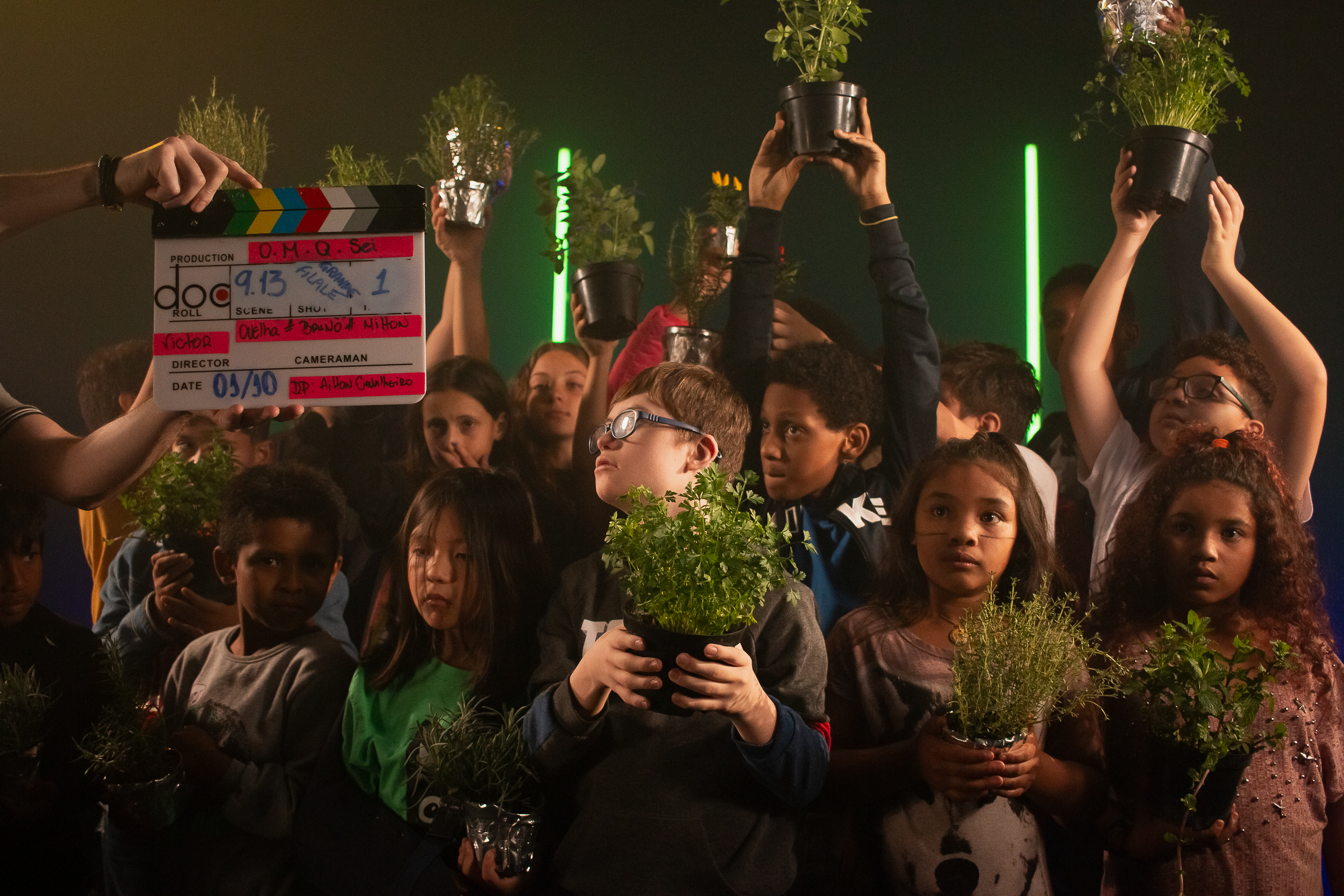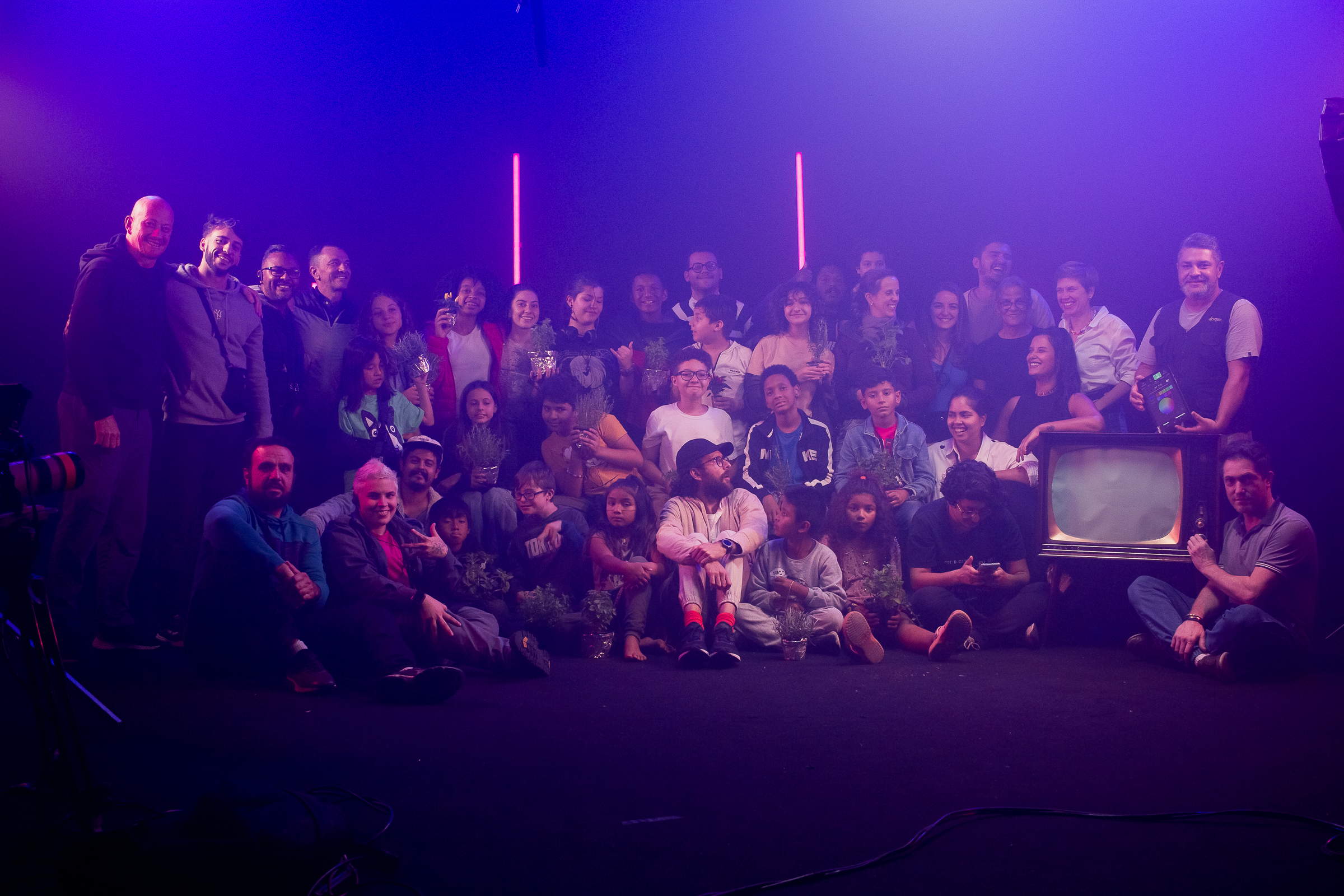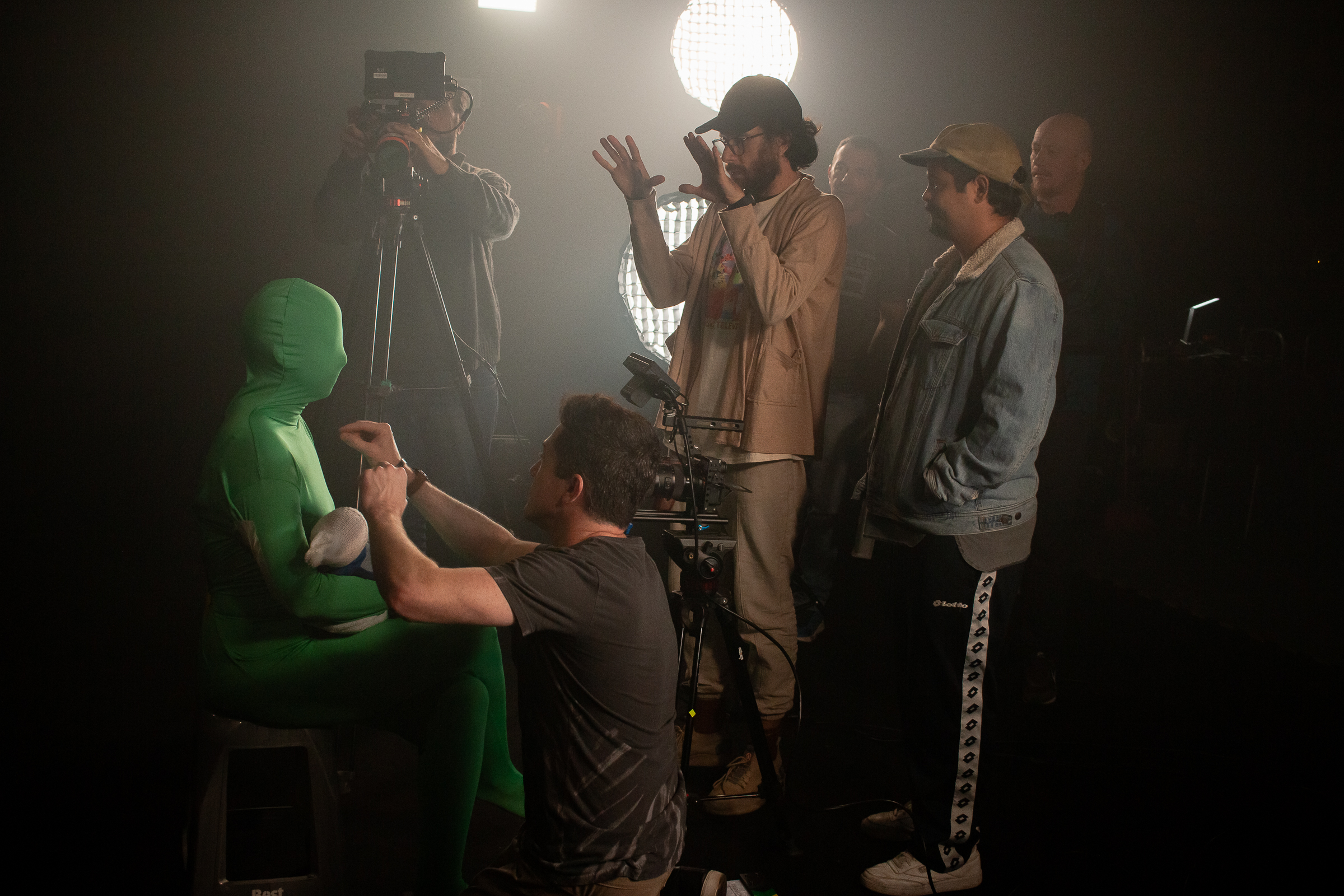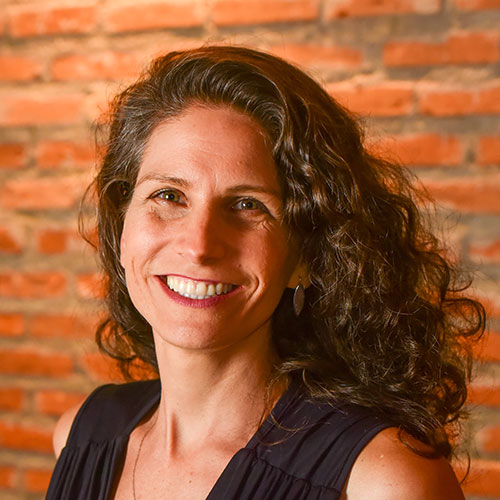O Mundo Que Sei: multimedia platform puts children at the center of the debate about contemporary life
By showing children's perceptions, the project brings a sensitive reflection on our times


O Mundo que Sei (The World I Know) is a communication project that gives children a voice, but not just that. The multimedia platform brings a documentary series and podcast about contemporary life, through children’s perception. But beyond that, artistic creation and sensitive listening take us to thorny topics gently with the sincerity that only children have.
It’s all there, being spoken by those who have already noticed, from a very early age, the discomfort of racism and abandonment, the challenges of life in the city, the relationship between consumption and happiness, the role of the family, the preference for ultra-processed food, the effects climate change, among other somewhat delicate issues.
Based on ethnographic research carried out with more than a hundred children from the five regions of the city of São Paulo, the platform is an invitation to reflect on different childhoods and how the decisions of adults impact their lives.
Multimedia platform
The project arose out of curiosity: the managing partner of the communication agency Bebok, Paula Guedes, had Espaço Ekoa as a client, a children’s and elementary school in the West Zone of São Paulo, which adopts a methodology centered on the child as a subject.
Upon learning about this methodology, which treats the child as the author of their own life, inserted in more horizontal relationships, a concern arose: Paula wanted to know if children, in general, were being heard by our society.
“It all started with the pandemic. We were concerned about the issue of confinement and the use of masks and, when talking to the school director, Ana Paula Yasbeck, she commented that unlike adults, for children the least of the problems was wearing the mask, they put it on and went to play”.
That observation awakened the desire to understand what the children felt, said and thought. “I started looking for this information in the literature, but I only found what adults thought about children, there was nothing with their voices. The project then emerged as a desire to listen directly to children”, recalls the project’s executive director.

Sensitive listening
To make this project, ethnographic research was first carried out being coordinated by the anthropologist and childhood specialist Adriana Friedman. A group of five researchers interviewed 170 children, aged 6 to 12, from different classes and origins, in all regions of São Paulo, including the Guarani village, on Pico do Jaraguá, the highest mountain in the capital of São Paulo.
Care was taken to listen to children in their diversity. In this way, children from central and peripheral neighborhoods, students from public and private schools and residents of Casa Lar were interviewed.
According to Giuliana Bergamo, content director, “nine major questions would define the research, based on our anxieties, doubts and curiosities as adults, to find out what they thought about it”. Thus, the interviews covered everything from children’s relationship with feelings and emotions to what they thought about the impacts of capitalism.
The research data supported all content production on the platform. As a result, the documentary series with nine episodes emerged. At the same time, a quantitative survey was carried out with fathers and mothers throughout the country, which has been used to develop the themes of the podcast.
The final report of these researches will also be released on the platform soon. “We hope that the report can serve to guide public policies, we will have a meeting with President Lula and we will take The World I Know”, warns executive director Paula Guedes.
O Mundo Que Sei (The World I Know)
The OMQS series follows a fictional script: the character Solo is an alien intelligence that interacts with human babies and it is in this interaction that we listen to what the children have to say. One detail, in particular, makes everything more interesting:
The children who play the role of human babies are not child actors and always respond to Solo’s questions very spontaneously. In other words, they say what they really think, there is nothing rehearsed.
“The original proposal was to produce content for an adult audience. However, during the creation of the documentary, the director and screenwriter literally joined in the fun, and by proposing a playful universe, they ended up creating content that also appeals to children”, says Giuliana Bergamo.
In the podcast, the idea is to reflect what children said in the series, targeting the content to adults. For Paula Guedes, “the children perceive genders, postures and attitudes intuitively, and adults could learn from them”.


Contemporary life
And what do children think about contemporary life?
The content director, Giuliana Bergamo, gives us some tips:
“Children are very aware of what is happening in the world, they know that climate change is a problem, and that capitalism, that is, the way we produce and consume things, is causing it. They are also very aware of all forms of social and economic discrimination…”
“They know how to identify the different forms of violence: physical, verbal, emotional. They have a super critical reflection on family and marriage models. They know that the family can be same-sex, they are aware that many families are managed only by the mother and that there are dysfunctional families”, continues Bergamo.
“So, they are aware of the problems in the world, the impact of these problems on society and on their lives, and that is sad, you know? They have that way of speaking that is wonderful, often very poetic, but they are children!”, she concludes.
Giuliana remembers the speech of one of the indigenous children, who, when asked what could be done to improve the future, replied that “the village and the city had to stay together, because then no one would fight for space”.
“This is fantastic, because in addition to bringing up the issue of territorial disputes, which is so present in the lives of indigenous people, it also brings a solution that is different from what adults have given, which is just doing the demarcation”, says the director of content.
When watching the dialogues between Solo, the alien intelligence, and the human offspring, I realize that the child’s gaze reveals a worn-out humanity, marked by crises, inequalities and injustices. But aren’t children precisely the ones who give us hope to fight for a better world? So may we listen to them more carefully! To watch episodes of the series and the podcast, click here.
Want to support this cause?
The World I Know project is a permanent and free multimedia platform. The project was produced by Espaço Ekoa in partnership with Bebok, Social Docs and Bergamota. For more information, visit the OMQS website and follow social media on Instagram.



